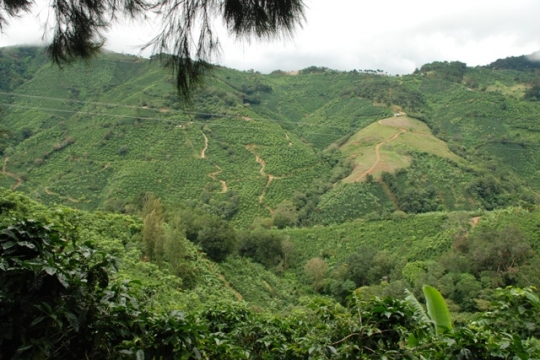This project analyze the determinants of farmers adaptation to climate change using field experiments to reflect the main characteristics of damages associated with climate change under uncertainty, ambiguity , role of communication and monetary incentives.
The risk of loses of income and productive means due to adverse weather associated to climate change can significantly differ between farmers, even if they live in the same area. It is important to learn more about how farmers react to different levels of risk, under measurable and immeasurable uncertainty. Also, farmers sharing a productive landscape might be affected by the actions of others and hence we need to understand how the decision to invest in adaptation can be changed by the actions and strategies of other farmers in the community. We use a framed field experiment that captures realistically the main characteristics of production and the likely weather related loses of premium coffee farmers in Tarrazu, Costa Rica. As expected, we observe high levels of risk aversion, but we do observe farmers making trade offs under different risk levels. We find that farmer’s decisions are mostly driven by risk aversion rather than ambiguity aversion, and that their decisions are taken based solely on information relevant for the individual, without attention to context information that has no implication for the farmer’s monetary payoffs. Finally, we also explore the role of communication and monetary incentives on the decision to adapt or not to climate change. Monetary incentives significantly motivate farmers to adapt, but if communication is allowed, farmers are able to coordinate more frequently in pursuit of reduced adaptation costs.



